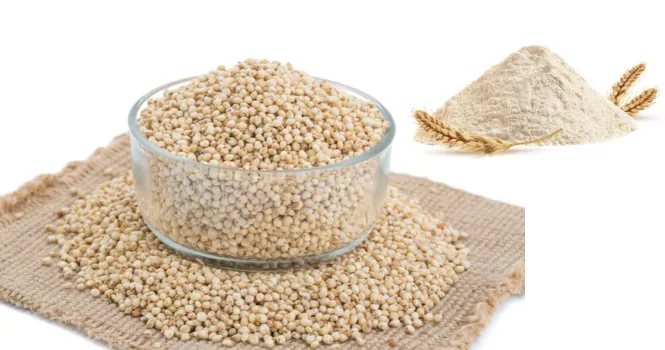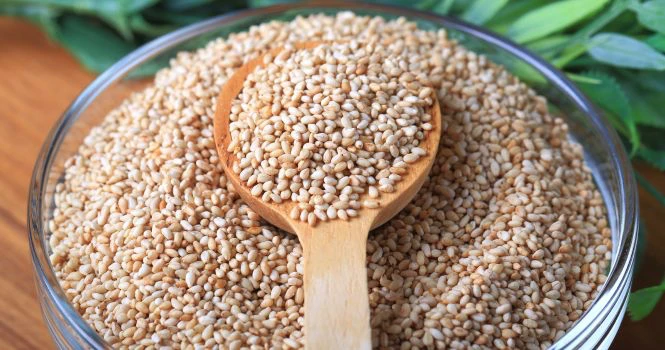10 Health Benefits of Celery

Celery, with its crisp texture and distinctive, refreshing taste, has long been a staple in salads and soups, but this humble vegetable has a lot more to offer.
Behind its unassuming appearance lies a powerhouse of essential nutrients that can make a big difference to your health.
So, whether you like it raw, cooked, juiced, or as a key ingredient in your meals, here are 10 health benefits of celery that make it worthy of a regular spot on your grocery list.
The following are some important health benefits of celery:
1. Low in Calories:
Celery is very low in calories, making it an excellent choice for those looking to lose weight or maintain a healthy weight. Including celery in your diet can help you consume fewer calories while still feeling full, thanks to its high water content.
2. High in Fiber:
Celery is a good source of dietary fiber, which is essential for digestive health. Fiber helps prevent constipation, promotes regular bowel movements, and could lower the risk of developing chronic diseases such as heart disease and type 2 diabetes.
3. Rich in Antioxidants:
Celery contains various antioxidants like vitamin C, beta-carotene, and flavonoids. Antioxidants protect the body’s cells from damage caused by free radicals, which are implicated in aging and various diseases.
4. Anti-Inflammatory Properties:
The antioxidants in celery, particularly a compound called apigenin, have anti-inflammatory properties. This can be beneficial in reducing inflammation in the body, which is a key factor in chronic diseases such as arthritis and heart disease.
5. Supports Hydration:
Celery has a high water content. Staying well-hydrated is essential for overall health as it helps in maintaining body temperature, lubricating joints, and facilitating nutrient transport throughout the body.
6. Celery May Lower Blood Pressure:
Celery contains a compound called 3-n-butylphthalide (NBP) which may help to lower blood pressure by relaxing the tissues of the artery walls. This can potentially reduce the risk of heart disease.
7. Celery Supports Bone Health:
Celery is a good source of vitamin K, which is important for bone health. Vitamin K is essential for the process of blood clotting and it helps to regulate calcium levels in the bones and blood.
8. Detoxification Benefits:
Celery has diuretic properties, which means it can help increase urine production. This can help to remove excess salts and toxins from the body, which is beneficial for kidney function and overall detoxification.
9. Alleviates Urinary Tract Infections:
As mentioned above, celery helps in increasing urine production. This is particularly useful in flushing out bacteria and toxins from the urinary tract, which can alleviate and prevent urinary tract infections.
10. May have Anticancer Properties:
Celery contains compounds like polyacetylenes and luteolin which have been studied for their potential anticancer properties. Though more research is needed, these compounds are thought to help in fighting cancer by inducing apoptosis (programmed cell death) in cancer cells.
Remember to enjoy celery as part of a balanced diet and not as a sole means to address health issues. It’s also important to wash celery thoroughly as it can sometimes carry pesticide residues.
Frequently Asked Questions
What Does Celery Do for the Female Body?
Celery has the same health benefits for both men and women. For females, it can be particularly beneficial in supporting bone health due to its vitamin K content, and it may also help in reducing water retention during menstrual cycles due to its diuretic properties.
Is Celery a Vegetable?
Yes, celery is a vegetable. It belongs to the Apiaceae family, which also includes carrots, parsley, and fennel.
What is Celery Called in India?
In India, celery is generally referred to as “celery” in English. In Hindi, it’s called “Shalari” or “Ajmud”.
What is the Tamil Name for Celery?
In Tamil, celery is called “Kinchathalam.
Is Celery the Same as Coriander?
No, celery and coriander are not the same. Although they both belong to the Apiaceae family, they are different plants.
Coriander is also known as cilantro, and its leaves and seeds are used as a herb and spice, respectively. Celery is usually consumed as a vegetable.
What is the Indian Name for Celery Seed?
In India, celery seeds are often referred to as “Ajwain” or “Ajmod”.
Can We Find Celery in India?
Yes, celery can be found in India. It is available in many supermarkets and local markets, especially in urban areas.
What is Another Common Name for Celery?
In some places, celery is also referred to as “smallage.
Is Celery a Type of Cabbage?
No, celery is not a type of cabbage. They are different vegetables. Celery belongs to the Apiaceae family, while cabbage belongs to the Brassicaceae family.
Which Part of Celery Do We Eat?
The most commonly consumed part of the celery plant is the stalk. However, the leaves and seeds of celery are also edible and used in cooking. The root of a specific variety known as celeriac is also consumed.











